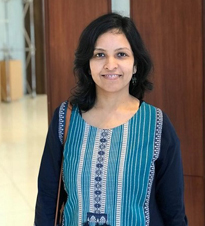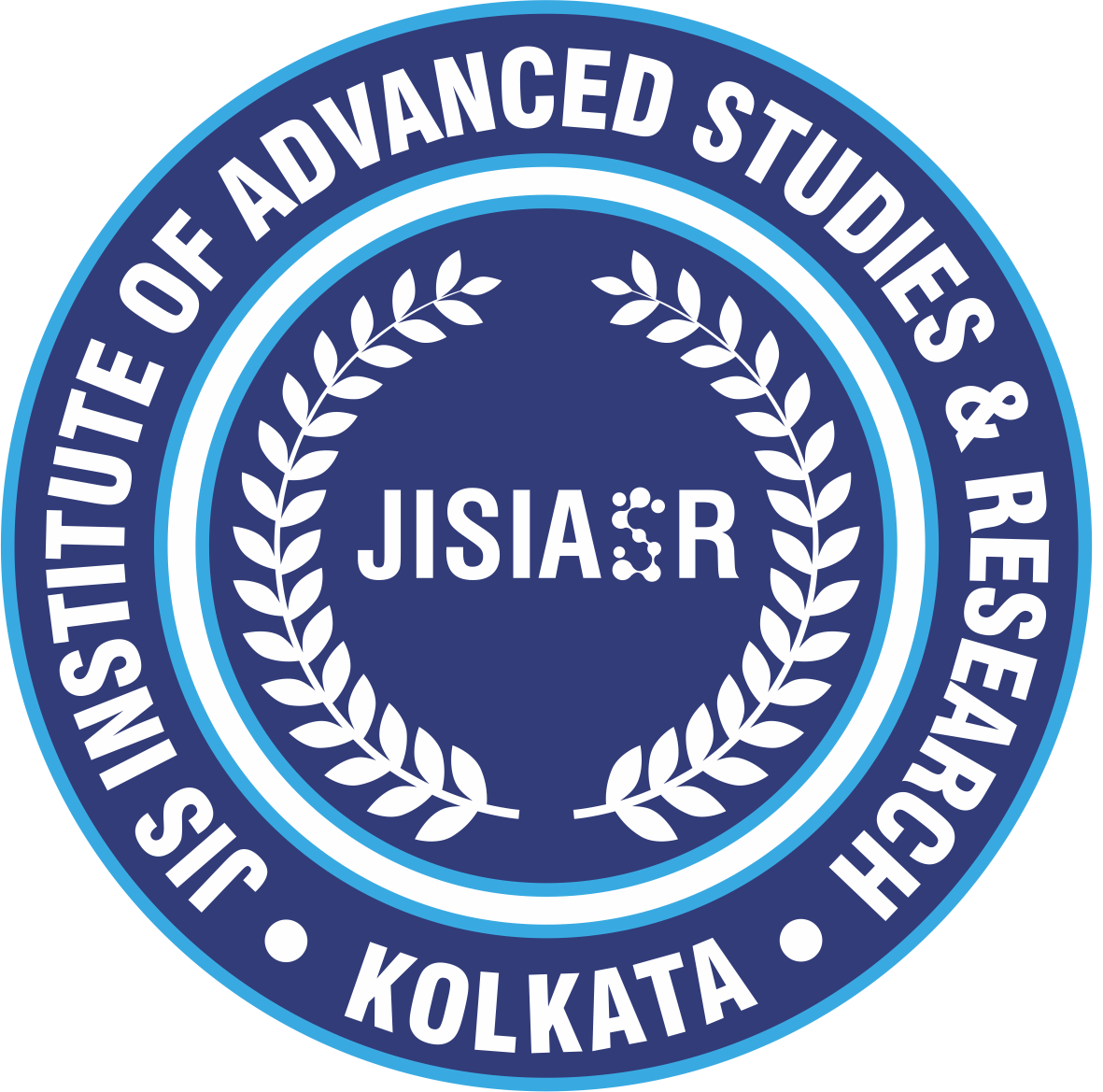Associate Professor
Centre for Health Science & Technology
Email: ksureka@jisiasr.org
Google scholar: https://scholar.google.com/citations?user=fCQ_jLMAAAAJ&hl=en
Postdoctoral Fellow, Department of Microbiology, University of Washington, Seattle, USA
Ph.D., Department of Chemistry, Bose Institute, Kolkata, India
Research Topics
Host pathogen interaction, second messenger signaling ,human microbiome, community signaling, cervical cancer
Research Focus:
My research is focused on elucidating the interactions of bacteria with their hosts that lead to the development of pathological states, which includes understanding the signaling mechanism of the microbial pathogens. Microbes almost always exist in complex communities in nature. Understanding how these microbial interactions in multispecies communities and cohabitate with their multicellular hosts vary in disease states in compared to healthy is necessary. One of the primary communication media of the microbial world are small molecules like cyclic-di-nucleotide. Uncovering the mechanism of small molecule induced regulation of microbial behavior in different states will lead to many important discoveries. We employ various techniques including metagenomics, microbial genetics, biochemistry, mass spectrometry, proteomics and cell culture for this purpose. Two of the major questions in this new field aim to:
1. Understanding the role of cyclic-di-nucleotide in microbiota inter-community signaling.
Cyclic dinucleotide signaling in oral bacteria has been under-studied and understanding the effect of this molecule on bacterial physiology and virulence in human oral cavity will be the focus of this project. Understanding the effect of cyclic dinucleotide in the microbial community ecosystem and multispecies biofilm formation will provide significant insight into the chemical communication network of the respective microbiome and we use the human oral microbiome as the model.
2. Identification and prevention of cyclic-di-AMP mediated virulence mechanism of human pathogens.
Cyclic-di-AMP have emerged as second messengers with fundamental biological roles in bacterial physiology and host immunity. Understanding the mechanistic detail of c-di-AMP mediated virulence mechanism and identification of the environmental cues that modulate this signaling pathway by developing novel biosensor-based tools will be a major outcome of this project. Several human oral pathogens will be utilized get this mechanistic insight.
Selected Journal Publications
1. Huynh T. N., Choi P. H., Sureka K., Ledvina H., Campillo J., Tong L., Woodward J. J. (2016) Cyclic di-AMP targets the cystathionine beta-synthase domain of the osmolyte transporter OpuC. Molecular Microbiology, 102(2):233-243: JIF 3.898.
2. Choi P. H., Sureka K., Woodward J. J., Tong L. (2015) Molecular basis for the recognition of cyclic-di-AMP by PstA, a PII- like signal transduction protein. Microbiologyopen, 4(3):361-374: JIF 2.148.
3. Sureka K.*, Choi P. H. *, Precit M., Delince M., Penisinger D. A., Huynh T. N., Jurado A. R., Goo Y. A., Sadilek M., Iavarone A. T., Sauer J. D., Tong L., Woodward J. J. (2014) The cyclic dinucleotide c-di-AMP is an allosteric regulator of metabolic enzyme function. Cell, 158(6):1389-401: JIF 28.71.
4. Ghosh S., Sureka K., Ghosh B., Bose I., Basu J., Kundu M. (2011) Phenotypic heterogeneity in mycobacterial stringent response. BMC Syst Biol., 5:18: JIF 2.213.
5. Dasgupta A. *, Sureka K. *, Mitra D., Saha B., Sanyal S., Das A., Chakrabarti P., Jackson M., Gicquel B., Kundu M., Basu J. (2010) An oligopeptide transporter of Mycobacterium tuberculosis regulates cytokine release and apoptosis of infected macrophages. PLoS ONE, 5(8): e12225: JIF 3.057.
6. Sureka K. *, Hossain T. *, Mukherjee P., Chaterjee P., Dutta P., Kundu M., Basu J. (2010) Novel role of phosphorylation-dependent interaction between FtsZ and FipA in mycobacterial cell division. PLoS ONE, 5(1):e8590: JIF 3.057.
7. Barik S. *, Sureka K. *, Mukherjee P., Basu J., Kundu M. (2010) RseA, the SigE specific anti-sigma factor of Mycobacterium tuberculosis, is inactivated by phosphorylation-dependent ClpC1P2 proteolysis. Mol Microbiol., 75(3):592-606 : JIF 3.898.
8. Sureka K., Sanyal S., Basu J., Kundu M. (2009) Polyphosphate kinase 2: A modulator of nucleoside di phosphate kinase activity in mycobacteria. Mol Microbiol., 74(5):1187-1197: JIF 3.898.
9. Mukherjee P. *, Sureka K. *, Dutta P., Hossain T., Barik S., Das K. P., Kundu M., Basu J. (2009) Novel role of Wag31 in protection of mycobacteria under stress. Mol Microbiol., 73(1):103-119: JIF 3.898.
10. Sureka K. *, Ghosh B. *, Dasgupta A., Basu J., Kundu M., Bose I. (2008) Positive feedback and noise activate the stringent response regulator rel in mycobacteria. PLoS ONE, 3(3):e1771: JIF 3.057.
11. Sureka K., Dey S., Datta P., Singh A. K., Dasgupta A., Rodrigue S., Basu J., Kundu M. (2007) Polyphosphate kinase is involved in stress-induced mprAB-sigE-rel signalling in mycobacteria. Mol Microbiol., 65(2):261-276 : JIF 3.898.
12. A micro-commentary (Manganelli R., (2007) Polyphosphate and stress response in mycobacteria. Mol Microbiol., 65(2):258-260 ) about this work was written in the same issue of the journal.
Sponsored Projects and Grants
1. Elucidation of cyclic-di-amp signaling pathway in mycobacteria using chemical proteomics and FRET-based biosensors and its therapeutic implications. Status: Ongoing. Funding Agency: DBT/Wellcome Trust India Alliance.
2. Hands-on training for next generation sequencing and data analysis. Status: Completed. Funding Agency: SERB Accelerate Vigyan.


